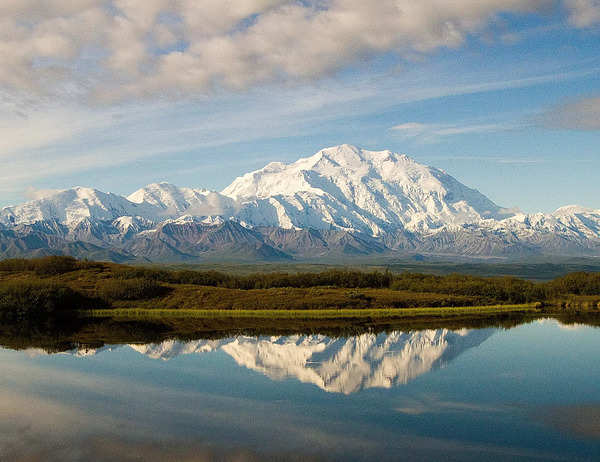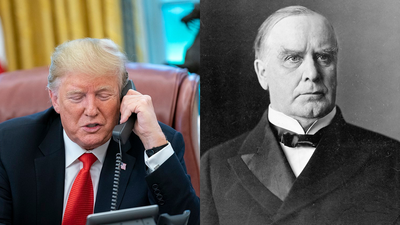During his inauguration speech, Donald Trump hailed President William McKinley and announced plans to restore the name of North America’s tallest peak from Denali to Mount McKinley. This decision would reverse the 2015 action by President Barack Obama, who had officially recognized the mountain’s traditional Alaska Native name, Denali, meaning “The High One.” While the state of Alaska had long adopted the name Denali in deference to its indigenous heritage, Trump’s declaration sought to reassert the federal recognition of McKinley’s legacy.
Mount McKinley was named in 1896 by a gold prospector, William A. Dickey, to honor McKinley, then a presidential candidate known for his advocacy of the gold standard. Despite McKinley having no connection to Alaska, the name was officially adopted by the federal government in 1917. However, the peak had been called Denali for centuries by the Koyukon Athabascan people, reflecting its immense height and spiritual significance.
Efforts to restore the indigenous name began in earnest in the 1970s, culminating in Alaska’s state recognition of the name Denali in 1975. For decades, federal efforts to align with Alaska’s designation were blocked, often by Ohio lawmakers seeking to honor their native son. In 2015, the Obama administration resolved the debate, using executive authority to formally recognize the peak as Denali at the federal level. The decision was widely praised in Alaska and by indigenous advocates but met with resistance in Ohio and among some traditionalists.
Trump’s decision to rename Denali can be viewed as another Obama snub.

The renaming of Denali reflects broader cultural discussions around the significance of names, monuments, and historical narratives. Names hold power, encapsulating history, identity, and values. For Alaska Natives, the restoration of Denali was a symbolic reclamation of cultural heritage and a step toward honoring indigenous voices. For others, the name Mount McKinley represented national pride and a tribute to the 25th president of the United States.
William McKinley, who served from 1897 until his assassination in 1901, was a transformative figure in American history. His presidency oversaw economic recovery, victory in the Spanish-American War, and significant territorial acquisitions, including Puerto Rico, Guam, and the Philippines. However, his legacy has been overshadowed by his successor, Theodore Roosevelt, and debates about imperialism linked to his tenure.
In addition to his stance on Denali, Trump announced plans to rename the Gulf of Mexico to the “Gulf of America,” citing trade and border concerns. Such symbolic moves underscore how historical figures and place names are invoked to align with contemporary political narratives.
The debate over Denali’s name highlights the evolving understanding of history, striving to balance recognition of influential leaders like McKinley with respect for the cultural traditions and identities of indigenous peoples. As these conversations continue, Denali stands as both a natural marvel and a symbol of America’s complex heritage.




